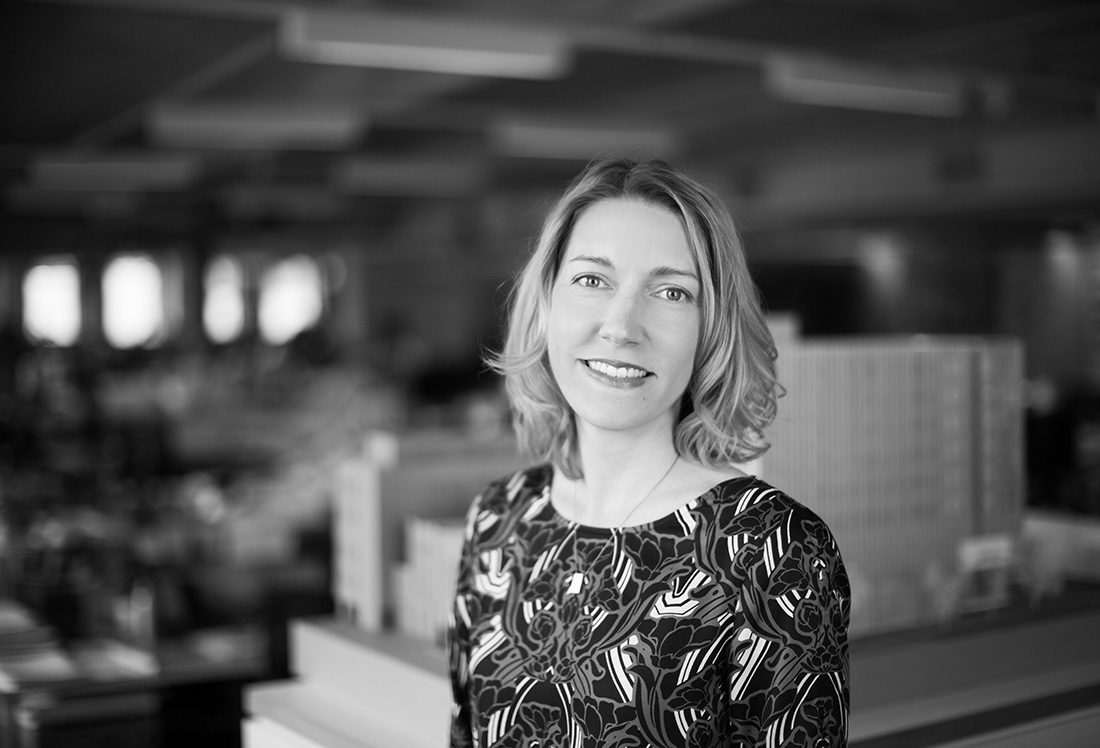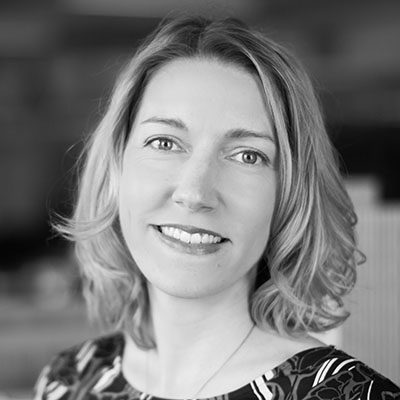At PAYETTE, we believe in sharing knowledge throughout our firm and the profession. In this series, we wanted to share advice from PAYETTE architects at different phases of their careers on topics ranging from creating mentorships, working towards your licensure and finding the right work/life balance.
Today, we hear from PAYETTE Associate Lynn Petermann, AIA, LEED AP.

Lynn joined PAYETTE in 2013 and strives to bring a high level of care to the field by making informed design decisions with an understanding rooted in the physical world, through an in-depth understanding of building science and experience in the construction field. Since joining the firm, Lynn has made significant contributions to projects at the University of Texas at Austin, the University of Kentucky and is an integral team member of the Building Science group’s research on thermal comfort.
What is the best piece of advice you received from a mentor or supervisor?
It’s okay to say you don’t know. One of the first projects I was working on out of school, I was drawing an exterior plan detail and hadn’t followed through on the supplemental steel framing. As the Project Architect was reviewing the detail, I basically trapped myself in a fib by saying I knew the size and location of the tube steel. While this can seem rather inconsequential in the scheme of a project, he first said “Get it right, these are construction documents” (also an excellent piece of advice), and then he said, “It’s okay to say you don’t know.”
In the field, I think younger architects may feel the need to not admit they don’t know or don’t understand. As architects, we’ve had rigorous schooling, and for some, not knowing can be viewed as a weakness. However, it’s much easier to lose face in acting as if you know. Since that point, I’ve never been served wrong by saying ‘I don’t know the answer to that, but I will check and get back to you.’
What advice would you give an architect starting at a new firm?
This is a bit of an extension from the first answer, but ask questions. The learning process is internalized through what you are drawing and working on, but also there will be times when you need to ask someone for help, whether it be for some issue in a computer program or not understanding the background information to a project. In an architectural office, asking questions should be an accepted part of the working culture of an office. Embrace it.
Where do you look for inspiration?
In Boston, there is quite the building boom, and just seeing how parts of the city are rapidly changing is really interesting highlighting both good and bad developments. Outside of architecture, I am interested in objects crafted by hand, from basketry, weavings/tapestries to pottery. I try to exhibits as they come through museums and follow a few blogs to see what new work is being produced.
Recommendation: Book, TV Show or Restaurant:
Since it’s summer and vacation season, I’ll recommend some books I’ve read while on vacation. I try to find books that are not too heavy (or long) with a sense of adventure. Here are a few I’ve enjoyed. While not exactly a light beach read, Station Eleven by Emily St. John Mandel is a novel that weaves character’s stories before and after an event that wipes out most of humanity. While it sounds dark and heavy, it is a great book. A Walk in the Woods by Bill Bryson. This book is laugh-out loud funny at times about two buddies tackling portions of the Appalachian Trail, and a great look at the Trail’s history. What is the What by Dave Eggers is a true story of one boys survival in escaping the Sudanese civil war and his eventual emigration to the United States. It’s a book that sticks with you.
Related
Advice for Fellow Architects and Designers: Part 1
Advice for Fellow Architects and Designers: Part 3


